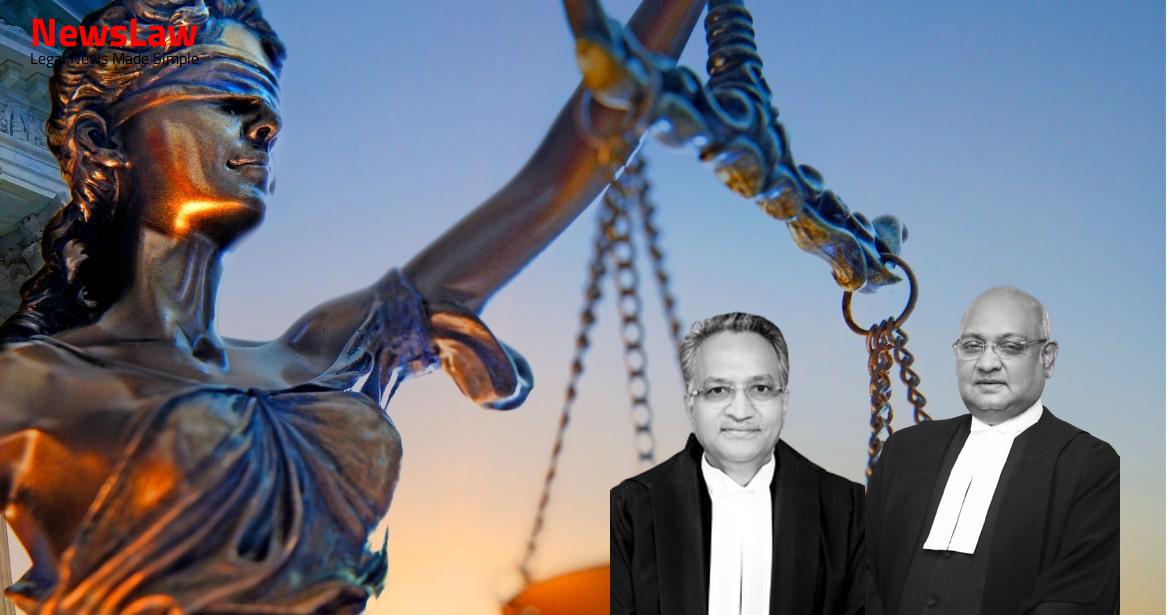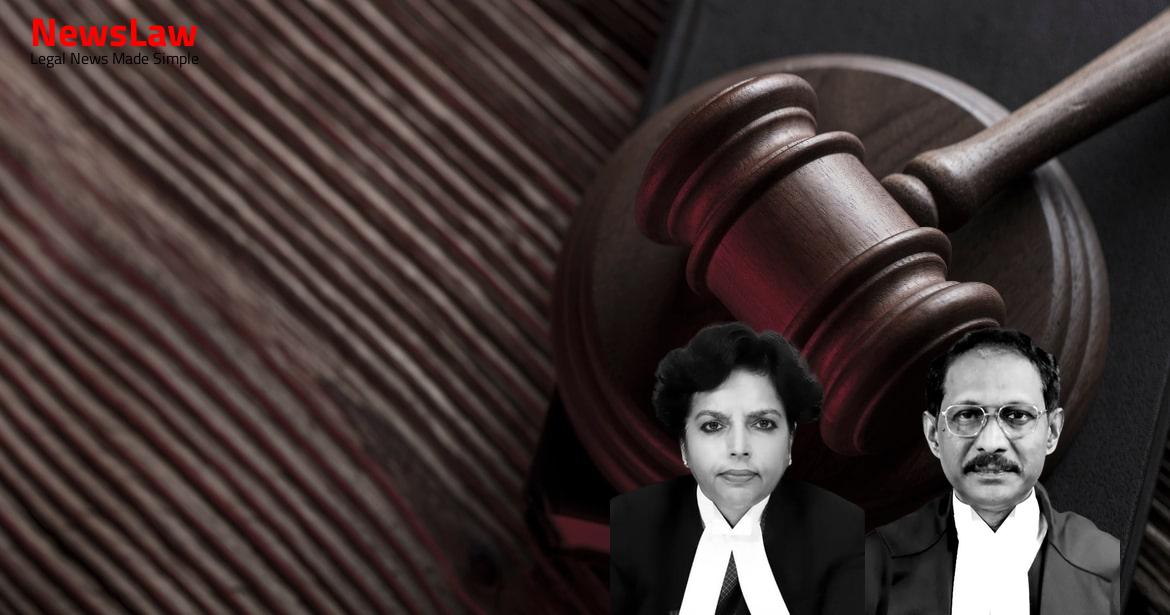Explore the in-depth legal analysis conducted by the Full Bench of the High Court regarding the expiry of the Ranked List in a recent case. The court’s thorough examination of the application of rules and principles sheds light on the complexities of the case. Stay informed about the implications of this decision by reading further in our blog post.
Facts
- The Division Bench of the High Court passed a “Reference Order” on 16.11.2018, referring the matter to the Full Bench due to a debatable decision of a Co-ordinate Bench.
- The empanelled candidates can go for training, but the advice and appointments are only valid against vacancies reported during the life of the Ranked List.
- The advice and appointment of candidates with less than 49 marks in the examination are dependent on the existence of the Ranked List.
- The first Ranked List (RL-I) expired on 1.6.2016 before the 93 NJD vacancies were reported to the KPSC on 12.7.2016.
- The Tribunal directed KPSC to re-cast the first Ranked List (RL-I) into main list and supplementary list.
- There were discrepancies regarding the observations of the Coordinate Bench in Dr. Kesavankutty Nair case, prompting the Division Bench to refer the matter to the Full Bench.
- The Full Bench held that the first Ranked List (RL-I) expired on 1.6.2016 based on Rules 13 and 14 of the 1976 Rules.
- The Full Bench maintained that no prejudice was caused to the appellants due to the interim orders passed.
- The Full Bench also discussed the obligations of KPSC to advise candidates from a Ranked List for all reported vacancies during its validity period.
- The Full Bench upheld the consolidated first Ranked List (RL-I) dated 11.9.2013 after civil appeals were allowed on 13.10.2015.
- The Full Bench referenced the maxims of actus curiae neminem gravabit and lex non cogit ad impossibilia to justify its decision.
- The High Court was directed to maintain status quo until further directives.
- The Full Bench ultimately ordered KPSC to advise the left out candidates from the first Ranked List against existing vacancies.
- The KPSC initially realized the lack of candidates from reserved categories in a list and reduced cut-off marks for reserved categories to include more qualified candidates.
- On 11.09.2013, the KPSC published the first Ranked List (RL-I) after completing the selection process.
- Interim relief was sought by candidates to prevent advising candidates with less than 49 marks from the preliminary examination from the list.
- The O.A. was admitted on 5.12.2013, 85 days after the publication of the first Ranked List (RL-I).
- A subsequent list, the third Ranked List (RL-III), was notified on 14.3.2019 by the KPSC.
- The KPSC made a third advice from the first Ranked List (RL-I) on 11.11.2015 after the disposal of civil appeals.
- Parallel litigation related to the first Ranked List (RL-I) involved candidates approaching the Tribunal for reporting vacancies and other matters.
- The Tribunal directed the reporting of vacancies and advised against advising candidates until specific actions were taken.
- The appellants appealed to be advised against 93 Non-Joining Duty (NJD) vacancies reported to the KPSC in 2016, which was declined by the respondents citing the expiration of the first Ranked List (RL-I).
- This Court intervened and requested the respondents to consider advising the remaining candidates against the available vacancies.
Also Read: Land Acquisition Challenges for Integrated Infrastructure Project
Arguments
- The appellants challenge the Full Bench’s approach, claiming it re-examined issues and factual aspects already decided by the Division Bench.
- They assert the application of Rule 3(b) of the KS & SSR regarding the maxim ‘actus curiae neminem gravabit’ for those prejudiced by a Court’s action.
- The appellants argue that the decision in Dr. Kesavankutty Nair’s case involved a ranked list from before the Rules came into effect, and the fault lies with the Respondents, not them.
- Judicial propriety compels the case to be referred to a Full Bench due to doubts regarding the correctness of a previous decision.
- An early hearing is warranted as 93 vacancies have not yet been filled, causing anxiety among the candidates.
- The counsel requests expedited proceedings for the anxious candidates awaiting their turn.
Also Read: Analysis of Legal Issues in Property Dispute Case
Analysis
- The Full Bench, in this case, had to analyze the factual matrix to ascertain the expiry of the First Rank List (RL-I).
- The Reference Order did not specifically formulate any question for the Full Bench but directed an early resolution of the dispute.
- The Full Bench observed that the first Rank List (RL-I) ceased to exist on 1.6.2016 after the last batch joined training on 1.5.2016.
- There was a period of nearly eleven months where no advice was issued due to an interim order, which extended the life span of the Rank List.
- The Full Bench analyzed the application of Rule 13 to determine the expiry of the Rank List in a comprehensive manner.
- The Full Bench of the High Court adjudicated on other matters while deciding the Reference.
- The appellants were not entitled to base their claim on the first Ranked List (RL-I) which ceased to exist on 1.6.2016
- The principles of actus curiae neminem gravabit and lex non cogit ad impossibilia do not apply as there was no prejudice caused to the appellants by any court order
- The judgment of the Full Bench of the High Court is upheld
- The order of status quo did not prevent the final advice made on 11.11.2015 relating to 339 empanelled candidates from the first Ranked List (RL-I)
- The respondents were free to proceed with the final advice and training of candidates from the first Ranked List (RL-I) as nothing impeded them
Also Read: Legal Analysis on Levy of Customs Duty on Non-Excisable Goods Sold in Domestic Tariff Area by an EOU
Decision
- Advice and appointment of eligible candidates not affected by the order
- State Police Chief to recall candidates affected by the order
- Appeals dismissed with no order as to costs
- Advices made of ineligible persons to be reviewed and cancelled in light of revised rank list
- Pending interlocutory applications to be disposed of
Case Title: ANEESH KUMAR V. S. Vs. THE STATE OF KERALA (2020 INSC 365)
Case Number: C.A. No.-002368-002368 / 2020



